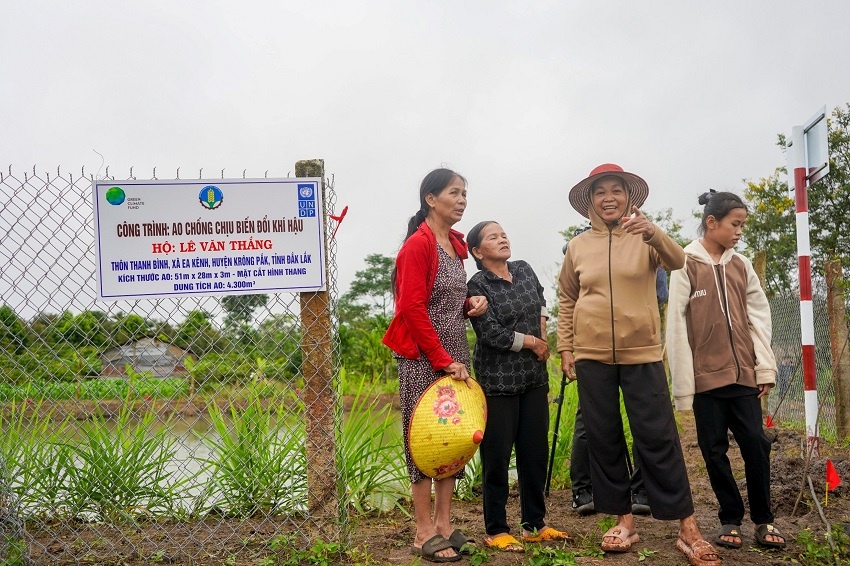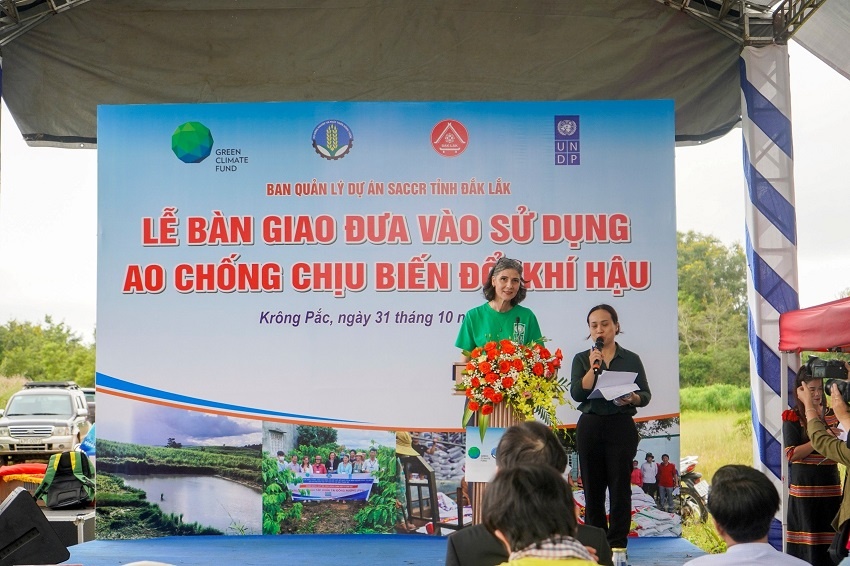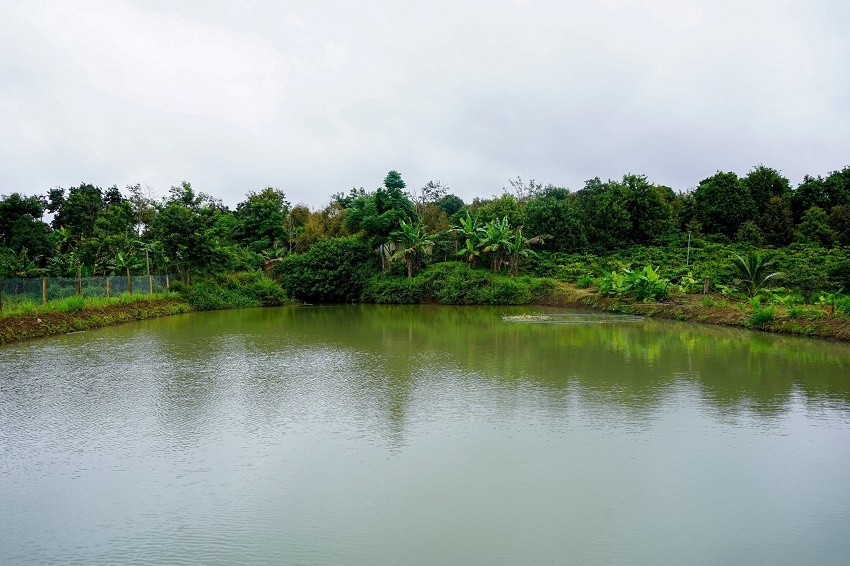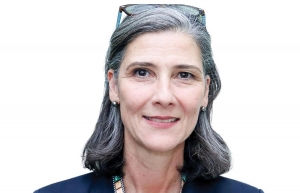Climate-resilient ponds handed over in Dak Lak province
The event took place on October 31 with the participation of the Central Office for Water Resources Projects (CPO), the Ministry of Agriculture and Rural Development (MARD) and was part of a project to strengthen the resilience of small-hold farmers to climate change-induced water insecurity in the region.
The project is financed by the Green Climate Fund and implemented by the UNDP, MARD, and the people’s committees of Dak Lak, Dak Nong, Khanh Hoa, Ninh Thuan, and Binh Thuan provinces.
 |
With peak dry season months from December to March, Dak Lak faces frequent water shortages. Many crop irrigation solutions, mainly small lakes and dams, have fallen to 'dead' water levels, making crop growing difficult as existing water sources meet just 40 per cent of demand.
According to preliminary statistics from Dak Lak’s agricultural sector, by the end of March, more than 1,300 hectares of rice and other dry crops had dried up. Losses of nearly 160,000 hectares of coffee, durian, pepper, macadamia, and fruit trees may be seen in the future due to a lack of irrigation water.
In the face of increasingly severe droughts, solutions are in urgent demand, and the climate-resilient pond project has supported several poor ethnic minority communities and households that are overwhelmingly economically dependent on women. In Dak Lak alone, the project has provided 70 ponds in Krong Pac and Ea Kar districts with a total capacity of over 60,000 cubic metres, irrigating an area of more than 52 hectares.
Le Van Thang, a representative of the beneficiary households in the Ea Kenh commune, thanked the project for its support, saying, “Previously, my house had a small pond to store water, but every year, it was only enough to irrigate about twice in the dry season before the water ran out. So crops in my garden often lacked water, affecting my family's income.”
“We had planned to expand the pond to have enough water for irrigation in the dry season. However, I could not do it because of the difficult economic conditions. But thanks to this project, my pond can now hold more water than before. On behalf of all the households who will benefit from the new pond, I would like to thank the project for their support,” Thang added.
Nguyen Hoai Duong, director of the DARD in Dak Lak, said, "Despite the province regularly upgrading and building new irrigation canals systems, support for small-hold farmers has had its limitations. Therefore, these new ponds in the area are particularly important.”
 |
UNDP representative in Vietnam Ramla Khalidi said, “This is one of 70 ponds we are handing over at this time, and we will deliver 260 ponds in total to Dak Lak. This pond results from the effective cooperation between the Ea Kenh community, local government, provincial government, MARD, and contractors. The project's goal is to build and renovate more than 1,500 rainwater harvesting ponds in the region.”
“Digging ponds to collect rainwater is a practical solution to adapt to the impacts of climate change. We hope that beneficiary households will learn about this project's resilient pond model and replicate it,” Khalidi added.
Pham Dinh Van, head of the CPO, said, “We will continue to coordinate with the DARD and pond management households in training, coaching, and guiding activities to ensure effective use of water resources during the dry season in Dak Lak and beyond.”
 |
Over 1,500 climate-resilient ponds are expected to be built by 2026. The project will create just over 900 new last-mile connection systems in Dak Lak, and build and upgrade 260 climate-resilient ponds while supporting the establishment of around 2,300 on-farm water-saving irrigation systems. Training on climate change adaptive agriculture will be made available to over 5,800 households in the province, and access to market, credit, and climate information for almost 30,000 small-holder farming families in the project area will be improved.
 | Greener principles will light a path for climate victory We are facing a triple planetary crisis with three interconnected challenges: climate change, pollution, and biodiversity loss. Climate change is happening even faster than scientists anticipated, and the past two months were the hottest ever recorded. |
What the stars mean:
★ Poor ★ ★ Promising ★★★ Good ★★★★ Very good ★★★★★ Exceptional
Related Contents
Latest News
More News
- Vietnam Television launches third 'Song Sau Lu' project for 2025 (December 15, 2025 | 08:00)
- Closing workshop highlights five-year impact of Fair for All project (December 12, 2025 | 16:22)
- Stakeholders mobilised before new child safety rules take effect (December 10, 2025 | 09:00)
- Vietnam receives emergency international relief as regional flooding intensifies (December 04, 2025 | 15:11)
- AmCham scholarships awarded to students (December 02, 2025 | 16:46)
- Vietjet flights carry love to devastated central region (November 28, 2025 | 11:35)
- SCG Sharing the Dream supports Vietnam’s youth and sustainable development goals (November 28, 2025 | 10:55)
- Siemens Caring Hands donates $34,700 for disaster relief in Vietnam (November 26, 2025 | 20:25)
- Ireland extends support for the Resilience First initiative (November 26, 2025 | 15:24)
- South Korea funds IOM relief for Vietnam’s typhoon-affected communities (November 24, 2025 | 15:33)

 Tag:
Tag:




















 Mobile Version
Mobile Version